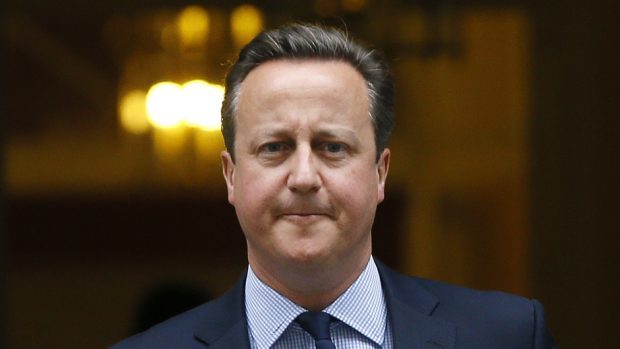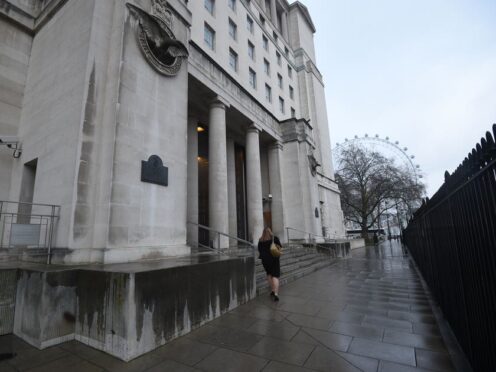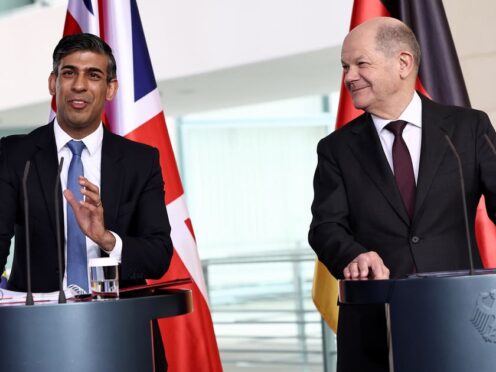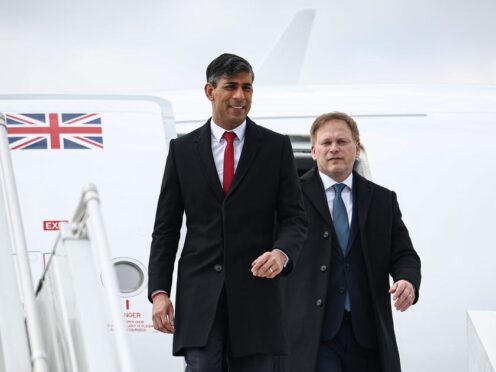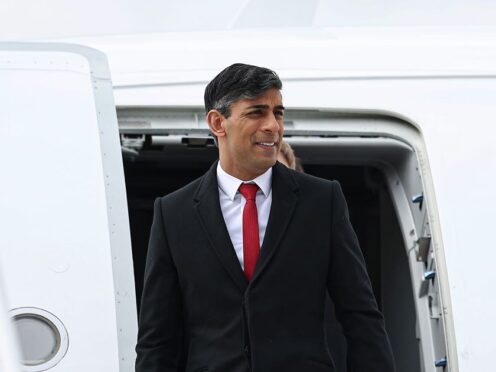David Cameron has quit as Prime Minister this morning after failing in his bid to keep the UK in the EU.
Speaking to the media outside Downing Street at 8.15am this morning, the Prime Minister said it would be impossible for him to remain in position.
It is also understood that Chancellor George Osborne will step down from his position in government
In January 2013, Mr Cameron pledged to hold an In or Out referendum on Britain’s EU membership if the Conservatives won a majority at the subsequent election, which they did last year.
The move was designed to finally address lingering discontent within his own backbenches over the European issue, and to stop the advance of Nigel Farage’s Ukip.
David Cameron resignation: His speech in full
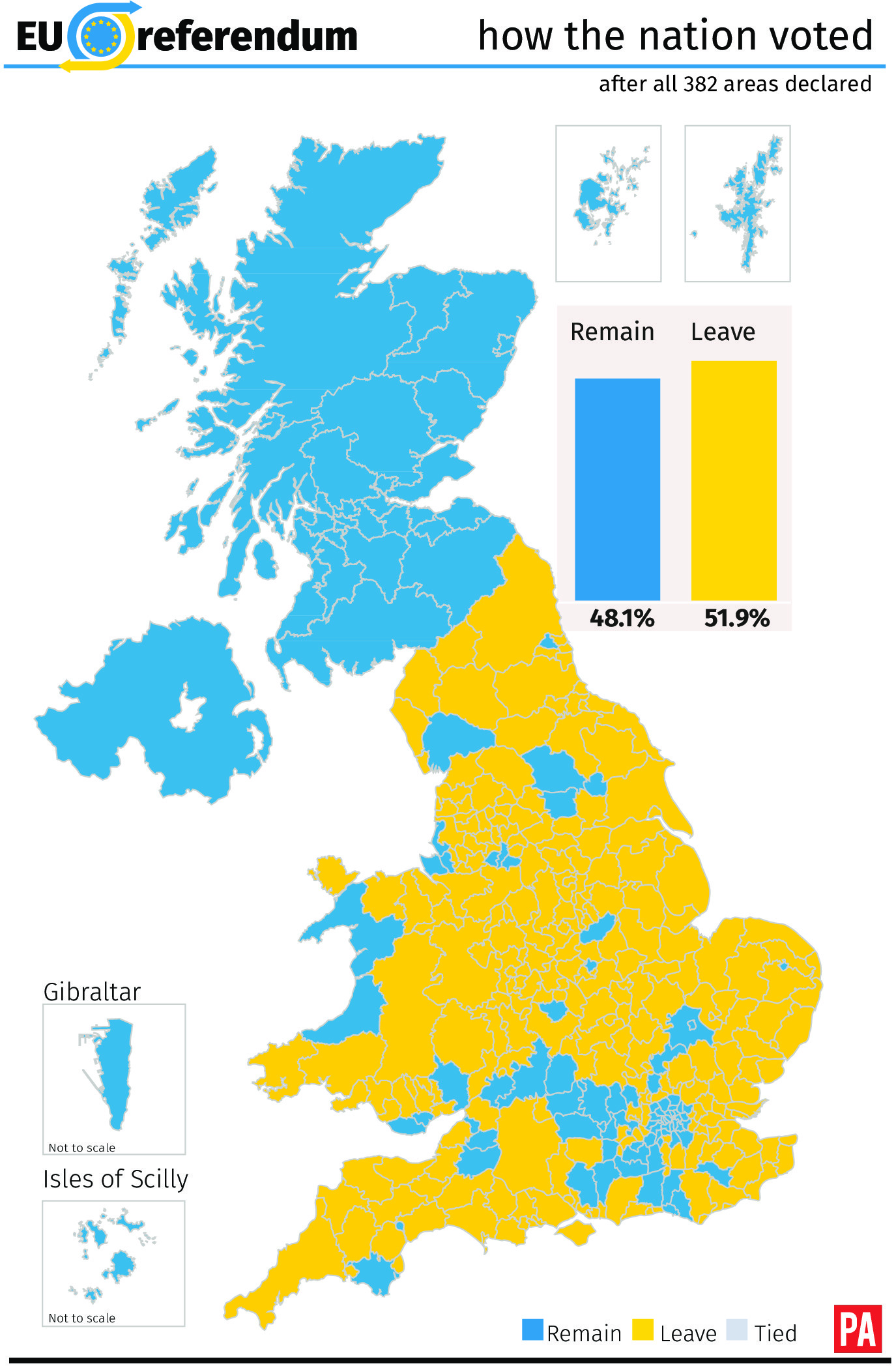
But the “deal” he negotiated in Brussels over EU reform fell short of many of his colleagues expectations.
And Mr Cameron and Chancellor George Osborne’s central role in the Remain campaign, including its dire warnings of the financial consequences of Brexit, infuriated many Tory Leave campaigners and ensured they would have to fall on their swords if the result went against him.
The defining moment of his six years at 10 Downing Street will be his gamble over the UK’s EU membership, and his defeat this morning.
A clearly emotional Mr Cameron said he stood by his assertion that the UK could “find a way” to survive outside the EU.
“Now the decision has been made to leave we need to find the best way and I will do everything I can to help,” he said.
Minutes after the PM’s statement, Bank of England governor Mark Carney announced he was making £250 billion available to support markets, as he pledged that the Bank “will not hesitate to take additional measures as required as markets adjust and the UK economy moves forward”.
Even as polling stations closed on Thursday night, most observers, pollsters and bookmakers were expecting victory for Remain, albeit by the narrowest of margins.
Ukip leader Nigel Farage even came close to conceding defeat, admitting he believed that Remain had “nicked it” and vowing to fight on for withdrawal from the EU, while senior pro-Brexit Tories including Mr Johnson and Michael Gove signed a letter calling on the PM to stay on regardless of the result.
But emphatic early victories in cities such as Sunderland and Swindon made clear the momentum was all on the Brexit side. As dawn arrived, it was clear that Leave had secured enough support in the English shires and former Labour strongholds in the North, Wales and Midlands to sweep aside strong Remain performances in London, Scotland and Northern Ireland.
With ballots counted in all 382 polling areas – including Gibraltar, which voted overwhelmingly to stay in the EU – Leave received 17,410,742 votes (51.9%) against 16,141,241 (48.1%) for Remain.
The result in Scotland is certain to create massive pressure for a second independence referendum. Former Scottish National Party leader Alex Salmond said he was “quite certain” that an effort to drag Scotland out of the EU against its will would lead to the invocation of a manifesto promise to stage another ballot if there was a “significant and material” change in circumstances from the 2014 vote.
First Minister Nicola Sturgeon said Scotland had delivered a “strong, unequivocal vote” making clear that “the people of Scotland see their future as part of the European Union”.
A jubilant Mr Farage declared June 23 “our independence day” to cheers from ecstatic supporters as the sun rose.
But there were recriminations among Labour supporters, with influential backbench MP John Mann – one of a handful to back a Brexit vote – calling for a change in the party’s direction, particularly on immigration policy. Senior Labour figures including Ed Miliband sought to cast the result as a protest against the effects of austerity as much as an expression of desire to leave the EU.
The Bassetlaw MP said the strong showing for Brexit in former heartland areas showed the party was “out of touch” with traditional voters who were “sick to death” with what they were being offered.
Foreign Secretary Philip Hammond did not rule out an emergency summer budget to respond to the damage the Government expects the Brexit vote to inflict on the UK economy. Ahead of the referendum, Chancellor George Osborne warned that a Leave vote might result in higher taxes, lower public spending or both, and Mr Hammond said that the Government’s fiscal consolidation programme would now become “more difficult”.
The Foreign Secretary said the markets’ response to the vote showed that “we don’t control everything”, adding: “We can’t just ignore the economic facts. We have to respond to them. We will have to look at the situation, see where the market settles, see what the immediate impact on the economy is and decide how best to proceed.”
Speaking at the Electoral Commission’s main counting centre in Manchester, Vote Leave chairman Gisela Stuart said the Brexit vote was “our opportunity to take back control of a whole area of democratic decisions”.
All political leaders should now “reflect on whether they have accurately gauged the people’s desire to govern themselves”, she said.
The German-born MP said a calm cross-party effort was now needed to implement the voters’ decision “in the best long-term interests of this country”. And she broke into her native tongue to assure other EU nations that Britain would remain an “open, welcoming” country which would continue to co-operate with its former partners.
Labour leader Jeremy Corbyn called on the PM to invoke Article 50 immediately, but leading Leave campaigners including Andrea Leadsom and Liam Fox said it was right to hold off.
Some 72.2% of the 46,500,001 eligible voters turned out at polling stations, said the Electoral Commission. The total turnout of 33,568,184 was just short of the highest ever participation in a UK general election, in 1992.
